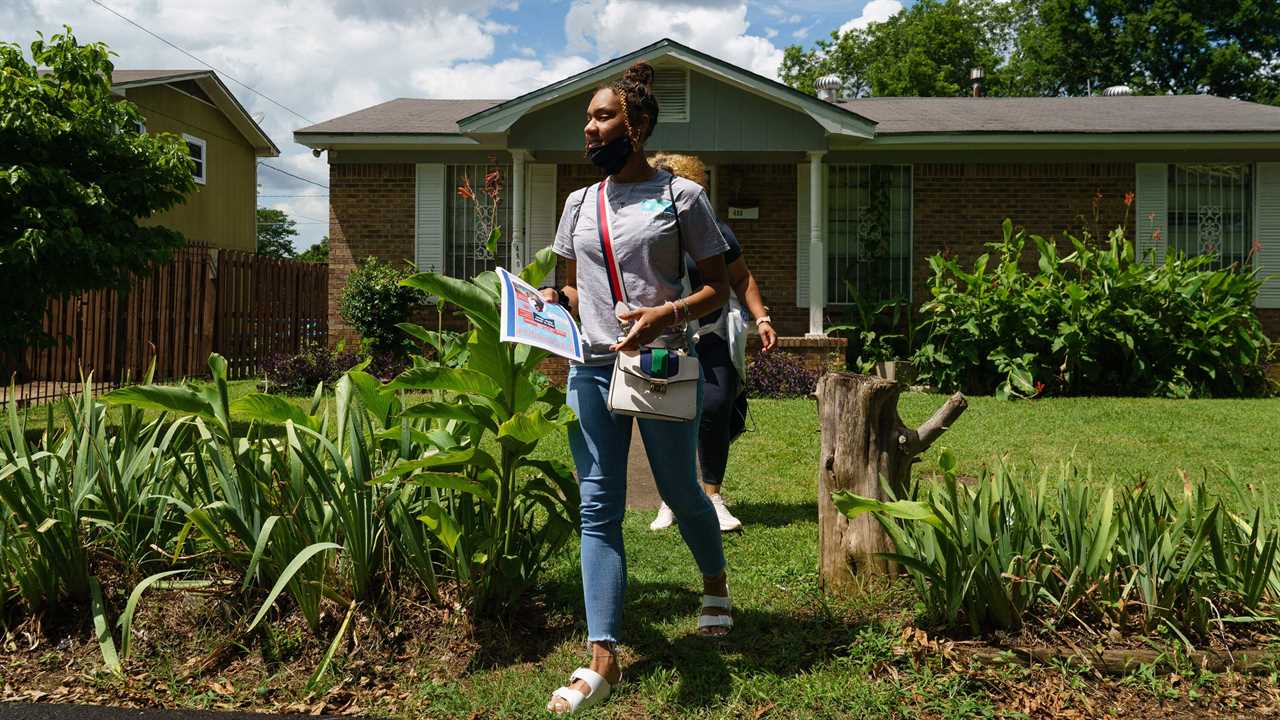
The highly contagious Delta variant of the coronavirus is now the dominant variant in the United States, according to new estimates from the Centers for Disease Control and Prevention. The agency calculates that Delta accounts for 51.7 percent of coronavirus infections.
As expected by health officials, Delta, which was first identified in India, has rapidly overtaken Alpha, the variant that spread through the United States this spring. Alpha, first detected in Britain, now makes up just 28.7 percent of infections, according to the C.D.C. Still, overall, the average numbers of new virus cases and deaths across the country, as well as hospitalizations, are significantly down from the devastating peaks during previous national surges.
Although Delta is highly contagious, research suggests that most vaccines still provide good protection against it — and remain highly effective at preventing hospitalizations and deaths. In England, for instance, where the variant now causes almost all infections, case numbers have risen sharply in recent weeks, but hospitalization rates have increased more slowly and remain low. Next week, a final decision will be made about whether to lift most remaining restrictions in England, including mask rules, on July 19.
In the United States, 67.1 percent of adults have had at least one vaccine dose as of Tuesday, and 58.3 percent are fully vaccinated. Studies suggest that a single shot of a two-dose regimen provides only weak protection against Delta, and public health experts have been encouraging Americans to get fully vaccinated as soon as possible.
Vaccination coverage remains highly uneven, however, both in the United States and globally, and public health experts say Delta poses a serious threat to unvaccinated populations. On Tuesday, President Biden again urged Americans to get their shots, citing concerns about Delta.
“It works. It’s free. And it’s never been easier, and it’s never been more important,” he said. “Do it now — for yourself and the people you care about, for your neighborhood, for your country. It sounds corny, but it’s a patriotic thing to do.”
Health experts say the Biden administration may need to take more aggressive action to encourage vaccination, including urging employers and schools to adopt vaccine mandates. As of Tuesday, providers were administering about 0.87 million doses per day on average, about a 74 percent decrease from the peak of 3.38 million reported on April 13, according to federal data.
As for the virus itself, the country has been averaging fewer than 15,000 new cases a day for nearly a month, the lowest levels since testing became widely available and a fraction of what was reported in January, when the nation routinely identified more than 200,000 cases in a day. In recent days, however, the average number of new cases nationally has started to trend slightly upward, driven largely by localized outbreaks in places with low vaccination rates, including parts of Missouri, Arkansas and Nevada.
As the Delta variant spreads across the globe, the World Health Organization recently reiterated longstanding guidance that everyone, vaccinated or not, wear masks as a precaution, but the C.D.C. has not changed its advice that those who are fully vaccinated can skip masks in most situations. U.S. health officials have suggested that the W.H.O.’s blanket suggestion was informed by its global purview, since many countries have had far less access to vaccines than the United States.
At a news conference on Tuesday, Jen Psaki, the White House press secretary, said that the Biden administration was unlikely to impose new national mitigation measures, even if cases rise.
“The states are going to have to make evaluations and local communities are going to have to make evaluations about what’s in their interests,” she said.
Mitch Smith contributed reporting.






